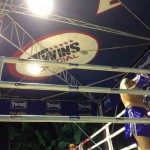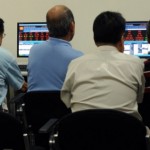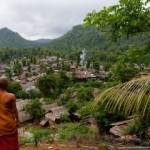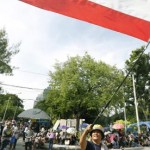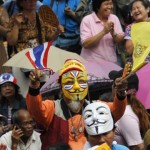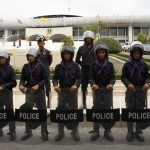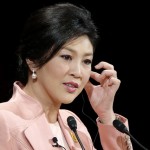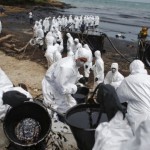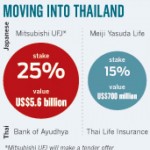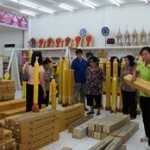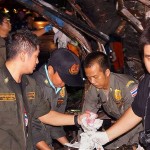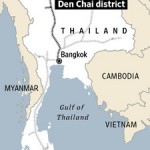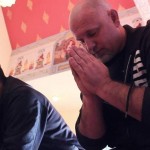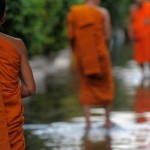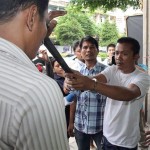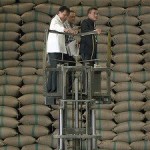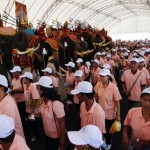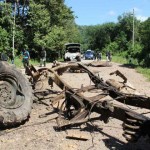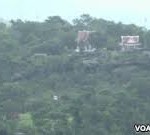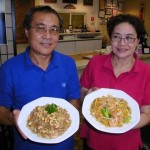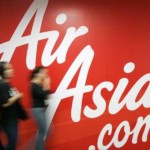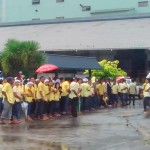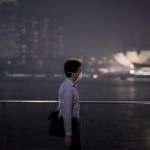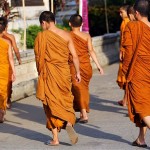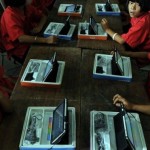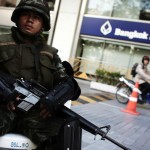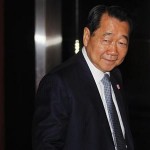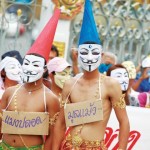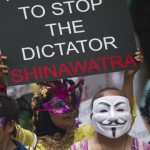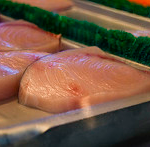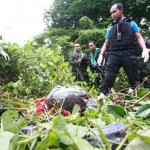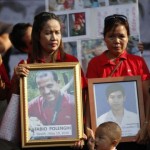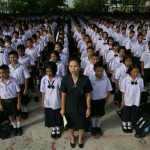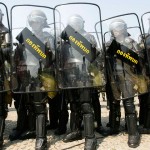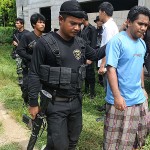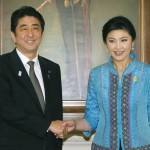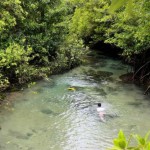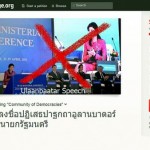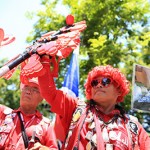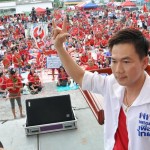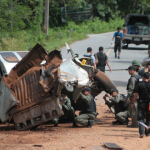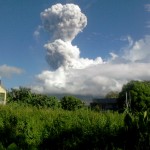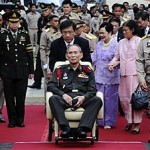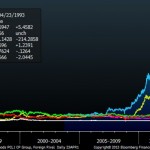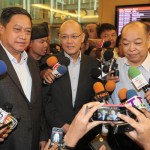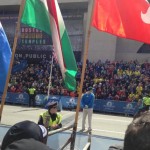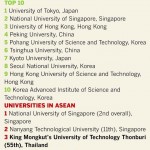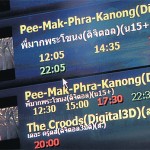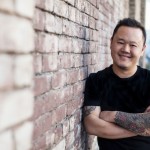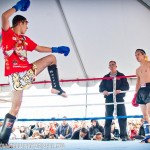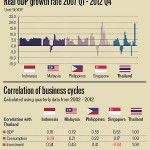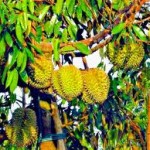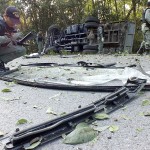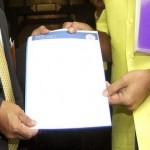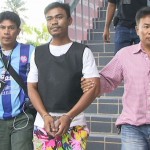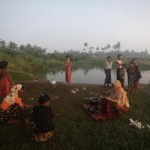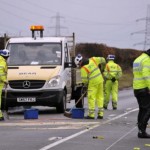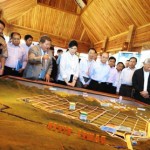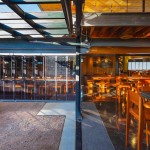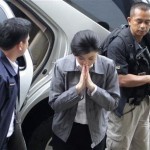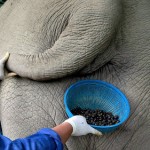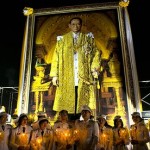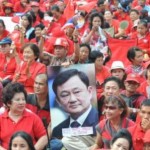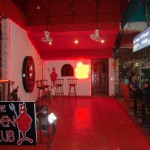Thai, Burmese govts back Dawei project
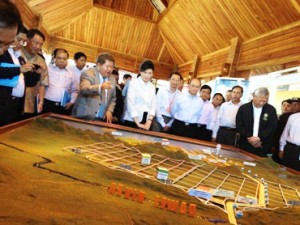 The Thai and Myanmar [Burmese] governments agreed to raise funds to finance the development of the massive Dawei deep-sea port and special economic zone project during a key meeting in Myanmar on Monday.
The Thai and Myanmar [Burmese] governments agreed to raise funds to finance the development of the massive Dawei deep-sea port and special economic zone project during a key meeting in Myanmar on Monday.
Thai Prime Minister Yingluck Shinawatra (center) is pictured alongside Burma’s President Thein Sein (pale blue shirt) at a briefing at the Dawei Special Economic Zone project on Monday, December 17, 2012. (Photo: Yingluck Shinawatra / Facebook) Thai Prime Minister Yingluck Shinawatra and her delegation, including 40 Thai businesspeople, visited Dawei city in Myanmar to inspect the sites of the development projects.
The governments’ infusion of cash is expected to prove to international investors that Dawei is a sound investment.
It was agreed that once funds are in place, construction will begin between April and the end of next year.
The delegation, which met Myanmar President Thein Sein, included Deputy Prime Minister and Foreign Minister Surapong Tovichakchaikul, Deputy Prime Minister and Finance Minister Kittiratt Na-Ranong, Transport Minister Chadchat Sittipunt and Energy Minister Pongsak Raktapongpaisal.
Ms Yingluck told the meeting her government fully supported development projects in Dawei. She hoped her trip would boost the project and give the businesspeople who accompanied her more information about the various development projects and the city.
The Dawei project has made progress since both governments formed a joint committee for the development plans last month, Ms Yingluck said.
Thailand plans to open a consulate in Dawei to ease investment, she said.
The Thai-Myanmar Joint Coordination Committee is reviewing technical data and working out details about how to attract investment to Dawei, but the investment details are not yet finalised.
She expects the committee will finish reviewing the project details by February next year and both countries could sign a framework agreement and their sectorial agreement on the project in March.
Both countries hope to start fund-raising in April next year, with initial construction beginning shortly after.
Ms Yingluck and Thein Sein said a full partnership between the countries will assure development projects in Dawei will be completed in an environmentally friendly manner.
In July, the two countries signed a memorandum of understanding to create a special economic zone for Dawei, with Bangkok agreeing to provide security, infrastructure and logistical assistance.
The project—led by Thailand’s largest construction contractor Italian-Thai Development—is expected to bring foreign investment into Myanmar as it emerges from decades of military rule, and provide Thailand with a gateway to the Indian Ocean and to Western markets.
But it has faced funding difficulties as Italian-Thai continues to seek investment partners.
Resistance has also come from locals. “Thai investors are afraid and hesitating about Myanmar’s political policies and the funding,” Italian-Thai marketing manager Pravee Komolkanchana said before the visit. “Thai banks are less likely to lend money if it is to invest in other countries, especially in Myanmar.”
Potential Myanmar investors are also wary, according to a businessman in Yangon who did not want to be named.
“We dare not invest there because of the costs. We would have to pay Thai salary rates,” he said.
“The project won’t benefit Myanmar much, but mainly Thailand.”
Work has yet to progress beyond the construction of new homes for the thousands of villagers due to be resettled, but the developers hope to begin work on infrastructure and factories next year.
Opponents to the plan were emboldened by Thein Sein’s decision last year to suspend construction of a $3.6-billion Chinese-backed hydropower project in the northern state of Kachin—a rare response to public opposition.
But local resistance to Dawei appears to have eased, although some villagers are still reluctant to move despite the offer of new homes. “We understand that we cannot stop the whole project,” a local environmental activist said.
During the meeting, Thein Sein agreed to a long-standing Thai request to have the Dan Singkhon border passage at Prachuap Khiri Khan developed into a permanent crossing.
Ms Yingluck has promised to support the building of a highway from Myawaddy via Kawkareik to Mawlamyine, and to revive an old railway near the Three Pagoda border crossing.
From: http://www.mizzima.com/news/inside-burma/8589-thai-burmese-govts-back-dawei-project.html











